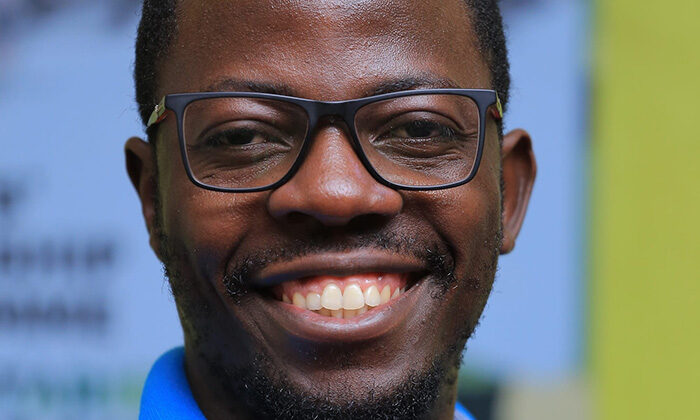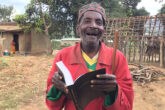
Godfrey Kuteesa. Courtesy Photo.
Because of the ease of access to explicit media and the potency of today’s pornography, more and more parents in Uganda are faced with the difficult and uncomfortable task of addressing the topic of pornography use by their children.
However, Mr Godfrey Kuteesa, the founder of Boys’ Mentorship Uganda, believes that it is far wiser for parents to have open and candid conversations with their children now, rather than waiting until later in life to deal with the addiction when it has had many years to become an ingrained pattern of behavior.
“If you suspect that your son is struggling with pornography, reach out and get help for him,” Mr Kuteesa wrote in an update.
Research suggests that one in three children ages 11 to 14 have viewed pornography on a mobile device.
Kuteesa who recovered from a pornography addiction after more that 18 years, explained that the more explicit content a child consumes, “the more he tends to withdraw emotionally from real people” and rely on the material.
“Porn promises immediate satisfaction, endless excitement, and easy intimacy, but in the end, it robs the consumer of all three,” he said.
“One of the signs that your son might be struggling with porn is a change in his mood. He’s always hiding in the bedroom behind closed doors. He’s always on the phone with a couple of passwords,” he said.
“Where there’s porn, there’s masturbation and where’s masturbation there’s loneliness and self hate. Reach out and get him help,” he continued.
In the country today, many youth and young adults in Church are able to keep their addiction secret and hidden from others without outward evidence of the problem.
Neurological research published by media has found that pornography is particularly addictive because of the neuro-chemical release in the brain that occurs while viewing pornography. For many porn users, the euphoric “high” that occurs in this process quickly develops into a coping style for escaping emotional distress.
Jen Wilkin, an author and Bible teacher, revealed in her article; Help Your Kids Say ‘No’ to Porn, published by the Gospel Coalition, that if children are being exposed to porn at young ages, the loving thing to do as a parent is to equip them to know how to respond.
“If we delay introducing the topic because of personal discomfort, shame, or uncertainty about how to begin, our children will form their first ideas about human sexuality based on the reports of their peers, the images on their devices, or the pop-ups that introduce them to porn,” she said.
“Children need to know they can come tell a parent without fear of getting in trouble or setting off high drama, even if (especially if) they looked at what was offered. When we give them permission to come to us, we reinforce a culture of confession in our homes,” she stated.
“We may not be able to shield our kids from pornographic images, but we can give them the internal tools they need to protect them from becoming entangled in secrecy, shame, and a warped view of sexuality.Whether they are 8 or 28, we want our children to choose confession over concealment every time. Reward their courage in coming to you by reacting calmly, affirming that they have done the right thing, and then helping them process what has happened and what to do moving forward,” she said.
“We must communicate clearly to our children that porn is telling a lie and that we will tell them the truth. As your child gets older, talk frankly about what porn is, about how it teaches a perverted view of sexuality, and about how it exploits both the viewer and also those revealed in the images. Talk about the consequences of having a wrong view of sex and sexuality, the dangers of lust, and the sin of objectifying another person made in the image of God,” she added.

